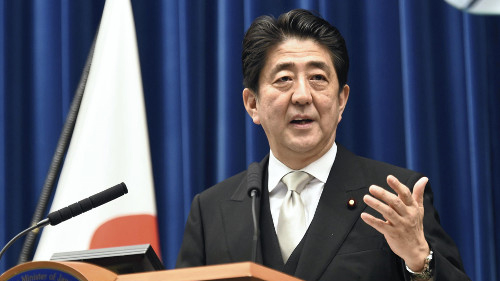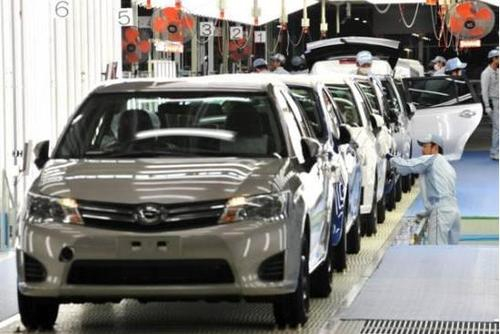
Biz Analysis
17:12, 14-Apr-2019
Where are Shinzo Abe's new market opportunities?
You Yang, Zhang Congying
01:57

Amid optimism that China and the U.S. are nearing a trade deal, Japan is kicking off its own negotiations with Washington on Monday. The talks will be led by Japan's Economy Minister Toshimitsu Motegi and U.S. Trade Representative Robert Lighthizer in Washington, DC.
U.S. President Donald Trump has frequently complained that Japan has an unfair advantage in bilateral trade and promised to fix that. Last May, he ordered an investigation into the possibility of imposing tariffs of up to 25 percent on foreign automobiles and related parts.
That move could have serious repercussions for Japan. Let's take a look at how trade ties between the U.S. and Japan have changed since Donald Trump took office.
"Cars are a sore spot in U.S.-Japan relations..." That's what Trump said about the economic ties between Washington and Tokyo. He believes trade with Japan is neither fair nor open. "The United States has a massive trade deficit with Japan. Japan sends us millions of millions of cars... and we tax them not at all," said the U.S. leader.

Japan's automobile manufacturing industry. /Xinhua Photo
Japan's automobile manufacturing industry. /Xinhua Photo
Since Washington's withdrawal from the Trans-Pacific Partnership (TPP) trade agreement, economic ties between the old allies have soured.
Last March, Trump levied a 25-percent tariff on steel and a 10-percent tariff on aluminum imported from all countries except Canada and Mexico. Japan is the only major ally not given an exemption.
Tokyo hit back with a threat to slap tariffs on U.S. imports worth over 400 million U.S. dollars. No wonder Japanese Prime Minister Shinzo Abe may be considering new market opening opportunities.
Last July, Abe attended the ASEAN-related summit meetings, reaffirming Tokyo's support of the Regional Comprehensive Economic Partnership with the Association of Southeast Asian Nations (ASEAN) countries.
RCEP is a proposed free trade agreement (FTA) between the 10 ASEAN member states (Brunei, Cambodia, Indonesia, Laos, Malaysia, Myanmar, the Philippines, Singapore, Thailand, Vietnam) and the six Asia-Pacific states with which ASEAN has existing free trade agreements. Meanwhile, the talks for China-Japan-ROK Free Trade Agreement are also underway.
And on February 1, the European Union-Japan Economic Partnership Agreement (EPA) entered into force. Tokyo's strategy seems to be looking for leverage with as many countries and regions as possible for new trade opportunities.

SITEMAP
Copyright © 2018 CGTN. Beijing ICP prepared NO.16065310-3
Copyright © 2018 CGTN. Beijing ICP prepared NO.16065310-3